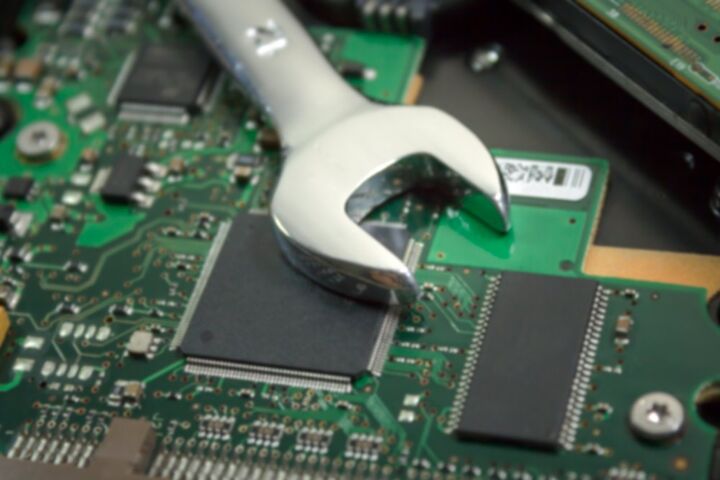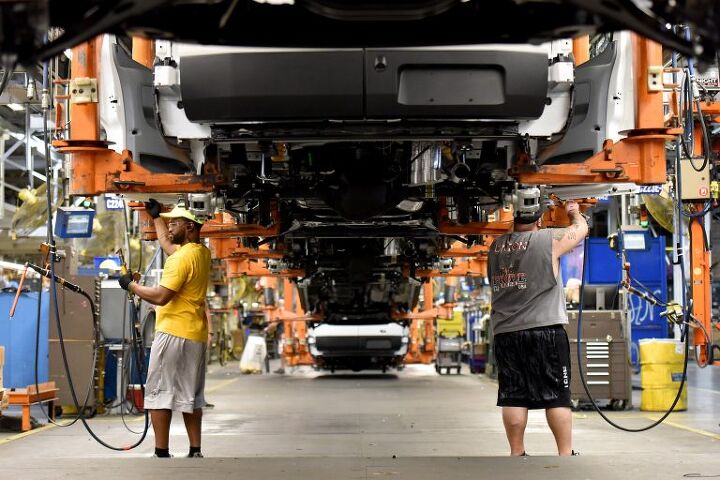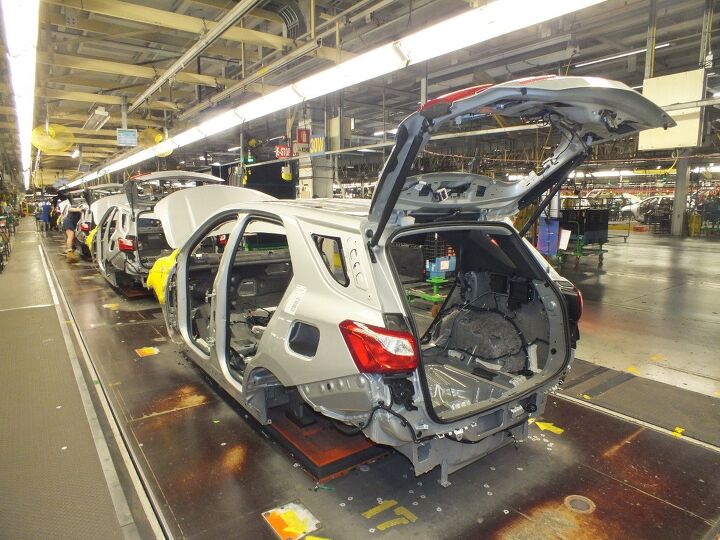#SemiconductorChips
Report: Biden Admin May Link Semiconductor Subsidies to Unions
Despite the semiconductor shortage having encouraged the automotive sector to repeatedly idle factories, word on the ground is that things are becoming more stable. Companies are seeing less production downtime overall and workers are reporting more reliable working conditions across the board. However, several automakers have continued to express concerns (e.g. Volvo), alleging that chip shortages could stretch deep into 2022, while the U.S. government ponders how to advance chip production in-country and become less dependent on Asian suppliers.
Commerce Secretary Gina Raimondo has been touring Michigan, meeting with union members and industry heads, and plans to urge Congress to move on a $52 billion in funding bill aimed at boosting domestic production. We’ve questioned the efficacy of the CHIPS Act before, primarily in relation to how the subsidies would be allocated. But there are new concerns that the plan will mimic the Biden administration’s EV subsidies by spending heaps of taxpayer money and giving union-backed organizations a larger cut.
Opinion: Governors Begging Congress for Semiconductor Cash Won't Fix Anything
There’s an initiative to convince Congress to pass legislation that would pour billions of dollars onto chip manufacturers at play that’s being led by Michigan Governor Gretchen Whitmer. A letter, signed by nine other governors, was issued asking like-minded lawmakers to send $52 billion in economic aid so that the chip shortage so that the supply issues that have been plaguing various industries (including the automotive sector) can finally be resolved.
Backed by the U.S. Semiconductor Industry Association (SIA), the “CHIPS for America Act” is just one of several programs designed to use the National Defense Authorization Act to create federal funding for chip suppliers. The governors (all of which are from states manufacturing automobiles) say they want a cash injection by the end of 2021 so that domestic chip manufacturing can build new factories right away. But SIA lobbyists are pressing for numerous plans that would result in extensive tax breaks and annual investments from the government that is all focused around the proposed CHIPS legislation and piggybacks on the recently passed U.S. Innovation and Competition Act (USICA).
Alright, let’s break this down.
Automakers Accused of Chip Hoarding, U.S. Considers Defense Production Act
Despite the occasional media report claiming that the semiconductor shortage is nearly over, reality looks quite a bit different. Some manufacturers have managed to temporarily stabilize supply chains, even though others have continued announcing work stoppages as they run out of chips. Wait times for the electronic components have also increased by about 61 percent since the beginning of 2021. Meanwhile, a recent Kelly Blue Book survey had 48 percent of respondents saying they were going to postpone buying a new automobile until shortages end, prices come down, and they can actually find the vehicles they’re looking for. But even those that were willing to buy now expressed a surprising level of acceptance to abandon brand loyalty or their preferred body style just to get a fairer deal on an automobile.
With the United States fairing worse than other regions in regard to chip availability, the White House has been under pressure to solve the problem all year. Thus far, government strategy has focused on encouraging investments for new semiconductor production. But there’s a new gambit being proposed that would invoke a Cold War-era national security law that would force manufacturers to furnish information pertaining to semiconductor supply lines and chip sales.
Senate Approves Bill Injecting Cash Into Semiconductor Industry
Apologies for all the semiconductor news. But it’s the topic of the day, with the United States Senate recently approving $52 billion in emergency spending to help bolster domestic chip production and another $190 billion for R&D programs.
Passing the vote (68-32) under the premise that boosting localized chip production would help prevent domestic automakers from having to cut corners, the Senate is also suggesting the funding could give the U.S. a competitive advantage against China. The Communist Party of China (CCP) has opposed the U.S. Innovation and Competition Act (formerly the Endless Frontier Act), with statements released from the National People’s Congress (NPC) demanding the legislation be halted immediately.
Semiconductor Shortage Delays More Automobiles
The industry is having to stall more plants to contend with the semiconductor shortage that’s currently making it more difficult for you to get everything from a smartphone on up to your next vehicle. Ford Motor Co. recently informed employees that its Dearborn truck plant (easily one of its most profitable facilities) would need to be idled through the weekend to create a buffer for semiconductor chips. Worse yet, it’s not the first time the automaker has had to stall output of the F-150 this year. Ford has also started manufacturing trucks without all the necessary components, stating it would hold vehicles for a few weeks to account for supply chain delays.
Meanwhile, Chrysler has made a similar announcement about its minivan output as Windsor Assembly faces another chip deficit. Unifor Local 444 recently stated that the facility would be staring down the barrel of a four-week shutdown starting next week. Considering Chrysler’s minivans literally just dealt with a three-week stall over the chip shortage, union workers are understandably upset. Days earlier, General Motors Canada also announced that its CAMI plant in Ingersoll, Ontario, will likely remain idle until the middle of April.
Pass the Chips: VW Group Demands More Semiconductors for Europe
Chip Shortage Expands, GM Forced to Idle Factories
While the Great Semiconductor Shortage of 2021 probably isn’t going to the defining historical topic of the modern era, it’s presently doing a number on the automotive industry. Volkswagen Group, Ford, Mazda, Nissan, Subaru Corp., Toyota, and Stellantis have all reported the need to scale back production this year.
On Wednesday, General Motors said that it would also have to handle the issue by closing down four plants next week. Affected sites include Kansas’ Fairfax Assembly, Ontario’s CAMI Assembly, and Mexico’s San Luis Potosí Assembly. GM Korea will likewise be operating Bupyeong 2 at half capacity, according to Reuters.





















Recent Comments